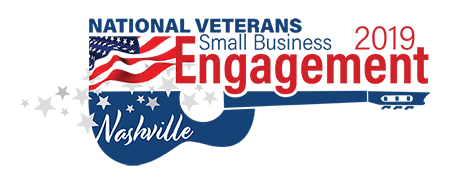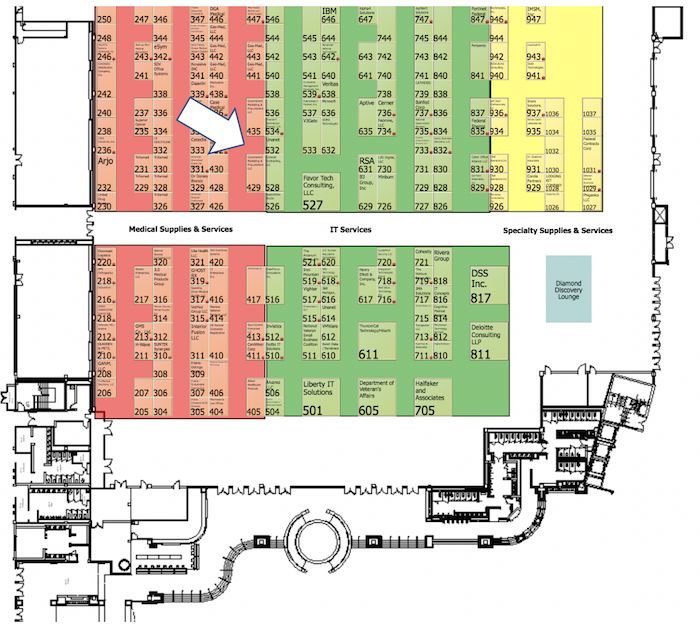
GMP is very excited about the NVSBE event next month in Nashville, TN. As we get closer to the date, we are solidifying our plans and we will be booth-sharing with five of our IT/Medical partners. To accommodate this, we have secured two large booths (#429 + #435), and because we have partners with both IT Services and Medical Supplies & Services we purposefully chose booth spaces that bordered these two sections within the exhibitor floor plan. The snapshot of the floor plan below shows our location with a white arrow.

We will be sharing these booth spaces with five innovative IT/Medical partners each with their own product/service offering that will benefit the Department of Veteran Affairs.
Vocera eases the work of nurses, doctors, and everyone who delivers care, with the leading platform for clinical communication and workflow. The Vocera Platform is the core of every Vocera solution. It is an operating environment for a comprehensive set of systems, software, and communication devices.
QGenda is the #1 scheduling solution that’s driving efficiency and performance. Their market leading physician scheduling solution, along with deep specialty experience and unique customer success model, are why small practices to the largest health systems select QGenda to help them optimize provider performance.
Ensocare’s software solutions allow hospitals, healthcare organizations, post-acute providers, payers, health plans, physicians, patients and family members to have the information and resources needed to optimize care coordination through the entire care continuum — from hospital to home and every stop in between.
MapsPeople is passionate about making lives easier. That’s why they specialize in Indoor Navigation and Google Maps Platform. They make the world more accessible by guiding you anywhere anytime. MapsPeople does that by transforming the future of wayfinding in innovative solutions that makes a difference for their clients and end-users.
CorTechs Labs’ cutting-edge brain image analysis solutions provide neurologists, radiologists, and clinical researchers worldwide with a convenient and cost-effective means to quantify subcortical structures to help in their assessment of a variety of neurological conditions, such as Alzheimer’s disease, epilepsy, multiple sclerosis, and brain trauma.
We hope to see you in Nashville next month!
